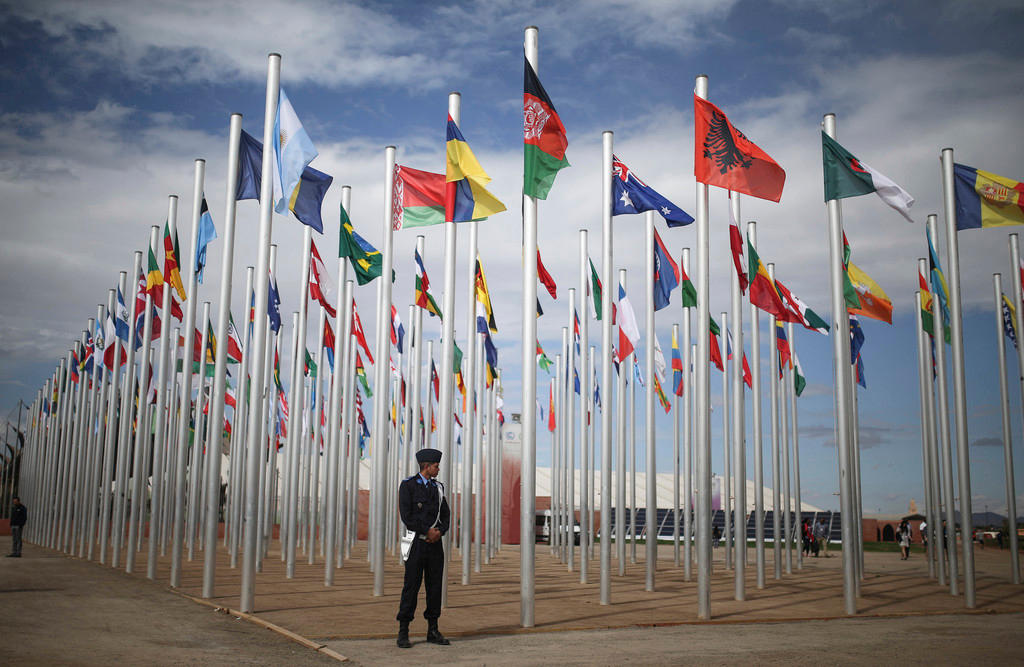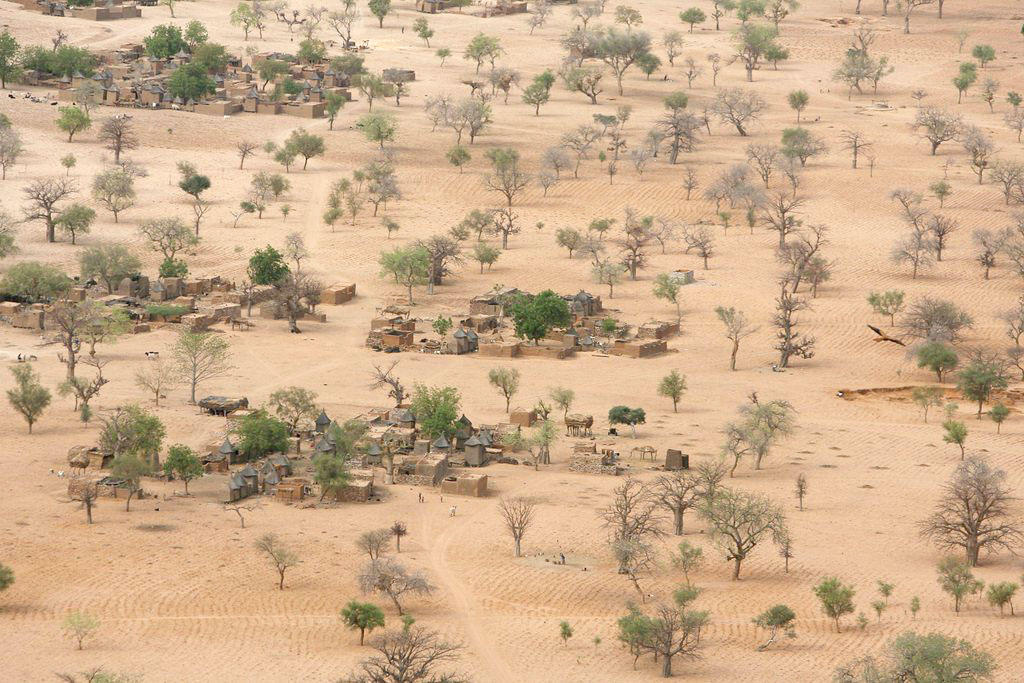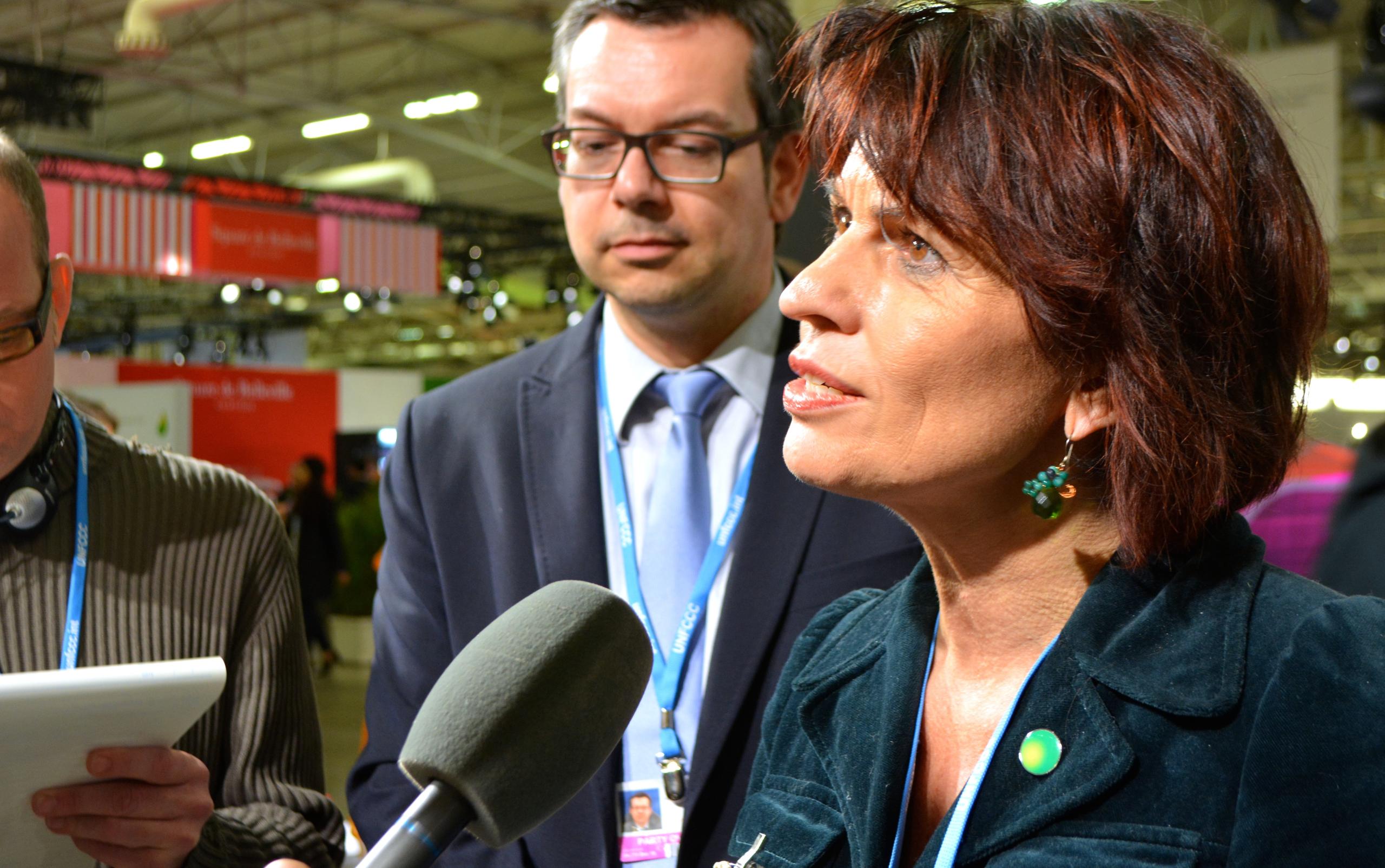Benefits of reducing emissions go beyond climate

A new report by the Swiss Academy of Sciences (SCNAT) highlights the economic and social opportunities that climate change adaptations can bring.
The report’s main message is twofold: firstly, climate change is felt especially keenly by alpine ecosystems, where warming is double the global average.
Secondly, immediate and coordinated action at the political, industrial, and societal levels is urgent, but doesn’t have to be a chore: many economic and social benefits can come from taking steps to mitigate and adapt to climate change, the authors say.
Published by ProClim, SCNATExternal link’s climate change forum, in collaboration with the Swiss environment ministry and the Advisory Body on Climate Change External link(OcCC), the 200-page report entitled “Spotlight on Swiss Climate – status and perspectives” was presented on Monday in Bern. Its publication coincides with the first day of the global climate summit COP22External link being held in Marrakech, Morocco.
“This report establishes new criteria. It is a must for all people concerned about the future of Switzerland,” said climatologist Thomas Stocker, co-chairman of the Intergovernmental Panel on Climate Change (IPCC) Working Group I, in a statement.
The report is based on data from the IPCC’s 2014 Fifth Assessment Report, plus additional scientific data specific to Switzerland, and was compiled over the course of three years by some 75 Swiss scientists and 40 expert consultants.
Adaptation required – at every scale
In 2015, Switzerland experienced its warmest annual average temperature since 1864, with the annual average temperature having increased 1.8 degrees Celsius since 1850.
The authors say that the impacts of this warming will range from acute and extreme events, such as heat waves and droughts, to the slow and irreversible alteration of landscapes and ecosystems in the form of melting glaciers, pest outbreaks, and changes in biodiversity and water quality.
These changes will touch every sector of Swiss society and economy, from tourism to health, the authors say. In this context, Switzerland’s goal of reducing greenhouse gas emissions by 30% domestically and by 20% abroad by 2030 is just a “first step” – zero net emissions by the end of the 21st century is an essential second step.
The authors note that apart from the economic and environmental changes that can be expected within its borders, Switzerland will also feel the impacts of climate change abroad, for example in issues of foreign trade or migration. Therefore, fostering sound global climate policy should be pursued independently of efforts to eliminate greenhouse gas emissions at home.
It is also important for local actors to coordinate plans for regional climate effects, and to account for adaptation and mitigation costs in different sectors, in order to set accurate priorities.
“I would like to see initiatives from Swiss science, businesses, and government following this report,” ProClim chair Heinz Gutscher told swissinfo.ch.
“For example, scientists working together with local politicians and local citizens. I think it’s time scientists go out of the universities and labs and offered themselves as facilitators in finding solutions. My hope that this report is a first step toward something like that.”
Silver linings
One point the authors stress is that while industry, business, and innovation are major sources of greenhouse gas emissions, they also have the chance to contribute to solutions by developing and commercialising new low-emissions technologies.
The authors call upon Swiss businesses and industries to include climate change in their long-term strategic planning, notably by decreasing fossil fuel use in the electricity and transport sectors, internalising external costs, and taking into account the growing price of CO2.
“Industry is not really eager to step out of CO2-intensive technologies, because any investment into the future will cost a lot of money,” says Gutscher.
“This report opens up a number of ways to look at the climate future in Switzerland. Particularly in the tourism industry, where we have a lot of investments in winter tourism. If you take the report seriously, you see that the future is in summer [tourism].”
The authors also stress the importance of citizen participation in climate adaptation efforts, and include recommendations for housing, transportation, food, and improved energy usage. Living more sustainably, the authors say, does not necessarily mean negative changes for citizens – and can even improve quality of life.
“Switzerland is a very rich country, and people who are rich are responsible for more CO2 emissions than people who are less well off,” Gutscher explains.
“It’s a very difficult target to address, but one solution would be a social movement to make people more aware of their quality of life. For example, one solution would be flying less often [for vacation], but staying longer in one place. So the value for the destination is the same, or even better.”
But not all the emphasis should be placed on individual behaviour: energy policies and incentives must be developed that increase freedom of choice, efficiency, and access to information, rather than just requiring sacrifices, the authors say.
COP22 Marrakech
The publication of the ProClim report coincides with the first day of the 22nd session of the United Nations Framework Convention on Climate Change (UNFCCC) Conference of Parties (COP). Known as COP22, the international summit is being held in Marrakech, Morocco, from November 7-18.
The goal of the conference is to develop action items designed to achieve priorities set during COP21, which took place in Paris in 2015. Swiss environment minister Doris Leuthard signed the Paris Agreement in April of this year, and Switzerland is expected to ratify it by the end of 2017.
Key topics will include technology transfer, climate adaptation and mitigation, transparency, capacity building, and loss and damages. Another focus will be encouraging countries that signed the Paris Climate AgreementExternal link to develop and commit to National Adaptation plans designed to keep this century’s average global temperature increase under two degrees Celsius.
Have you ever made any climate-friendly choices or changes that have also improved your quality of life? Share your experience in the comments!

In compliance with the JTI standards
More: SWI swissinfo.ch certified by the Journalism Trust Initiative














You can find an overview of ongoing debates with our journalists here . Please join us!
If you want to start a conversation about a topic raised in this article or want to report factual errors, email us at english@swissinfo.ch.